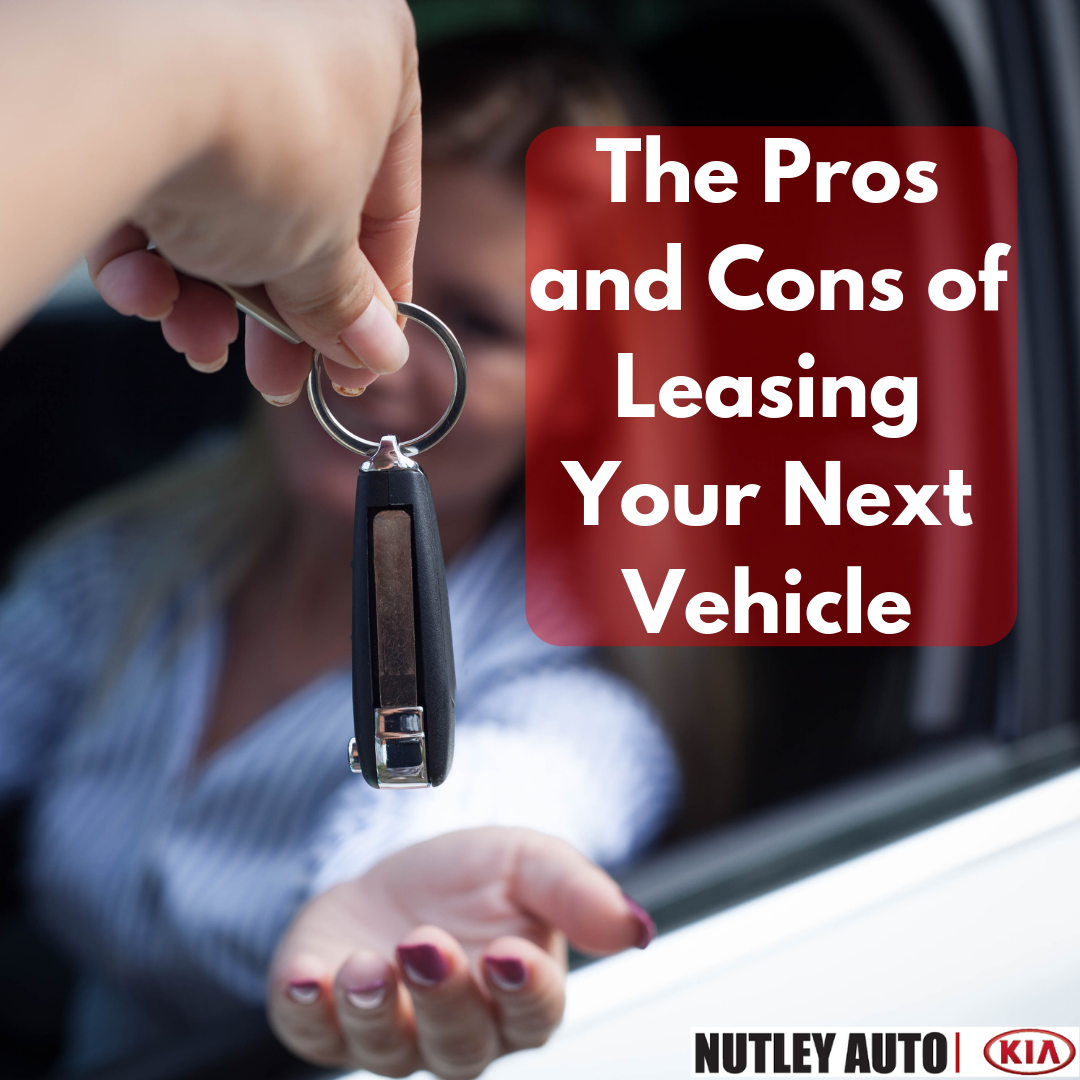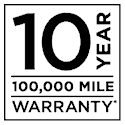

There are pros when it comes to leasing your next vehicle. Leasing a car has become mainstream in recent years, being a good alternative to buying, but is it right for you? We have built a list of the pros and cons of leasing your next vehicle, so you can decide for yourself.
Keep reading for a full list of the pros of leasing a car.
The Positive Side of Leasing
Leasing can be more appealing than buying, because monthly payments are usually lower. You’re not borrowing money, you’re just repaying the amount the car depreciates in the time you have it, plus finance charges. The pros of leasing a car are many:
Lower Monthly Payments and Down Payment
Because you are only paying for the depreciation of the car during the term you lease it, monthly payments are typically lower than when you buy it. You should not base the decision of leasing on having a lower payment, but you should think about your monthly budget when making the decision.
You may also have a smaller down payment when leasing than you would if you buy. Some leases do not require a down payment when signing. Some recommend that you put as little down as possible, so you are at a relatively reasonable payment for your next lease.
Driving a car without worries
When you lease, you’ll most likely be driving the latest model that has a manufacturer’s warranty, meaning you’ll be driving a car with no issues. You can drive a higher-priced, better-equipped car that otherwise you might not be able to afford.
You’re driving the car in its most trouble-free years and don’t have to worry about how much the car is worth or go through the hassle of selling it when you’re done with it. You can just drop the car off at your local dealer and get a new one.
Sales Tax Advantages
Depending on where you live, leasing a car can save you money on the sales tax of depreciation. In some states, you only have to pay tax on the amount you put down and your monthly payments. In others, you pay sales tax on the entire amount of the car. It is important to know the lease specifications for your area. It is recommended that you check with a tax professional who understands the specific tax laws of your location.
Easy Trade-In
When the time on your lease is up, you just simply drive the car to the dealership and walk away. This comes after paying a few final fees for any excess mileage and/or wear. You can choose to just walk away or drive out with a newly leased car. You don’t have to worry about selling an old car, just getting a new one. If a car still has value on it, you can trade in your lease. Other times, you are able to buy out a lease. Talk to your dealer about what is important to you.
Just as there are pros, there are cons to leasing. Take a look at them in this next section
The Negatives of Leasing
Leasing can seem attractive, but there is a downside depending on what you want. Sometimes, leasing isn’t the right option for everyone.
You Don’t Own The Car
When leasing a car, you have no ownership over it. It’s like paying rent for an apartment. The car belongs to the leasing company, which allows you to drive it as long as you fulfill your leasing contract.
Limited Mileage
Leases usually come with a strict mileage limit unless you want to pay more at the end of your lease. Depending on the car, excess mileage can range from 15 to 30 cents per mile. You will have a yearly limit but leasing companies will not check each year to ensure you stayed under that limit, they’ll look at the whole lease. Also consider you will pay for mileage no matter how you buy, a lease just keeps score. Going over the mileage is the problem.
The allowed mileage is the number of years you lease multiplied by the number of annual miles allowed. You should not exceed this unless you want to pay the extra 15 to 30 cents per mile. The expected number of miles you should stay under is priced into your lease. You can write in the number of miles on your lease. If you drive under that mileage, you are essentially paying for miles you haven’t used, so it’s important to estimate the number of miles you drive each year, so you don’t end up paying more. If you don’t know how much you drive per year, a lease might not be for you.
Usage Limitation
Some lease agreements have strict limitations on where you can drive your car and what for. If you’re thinking of leaving the country, you might not be able to. You might need written permission from your leasing company.
The same applies if you want to use it for ride-sharing companies like Lyft or Uber. Some lease agreements might exclude business use altogether. This will also put a lot of mileage on your car and more wear and tear, so leasing might not be an option. Just make sure you understand all the stipulations in any contract you sign.
No Customization Return
When leasing a car, customizing it might be a problem. You can customize it however you want, you just might not get that money back at the end of the lease. If you like adding extra features likes fancy wheels or off-road gear to your car, a lease might not be for you. Your lease contract will state that the car needs to be returned just as it left the showroom, minus wear and tear. So adding new features will only end up costing you more. Educate yourself about what leasing a car means before you go into it.
Lease-End Costs
Like we’ve stated before, you might have to pay some costs at the end of your lease. If you went over the mileage limit, you’ll have to pay the overage. If there is excess wear and tear, the leasing company may assess fees for excess wear and tear.
Most leasing companies provide a “Lease End” kit to help you know in advance what type of damage they will charge you for. Typically, if the damage can be covered by the size of a credit card, you won’t be charged. But if it is bigger, they will. Any damage to the windshield will likely cost you some money. Your interior should also be clean without interior tears or scratches and what you think is clean might differ from what a dealership thinks is clean.
Gap Insurance
Gap insurance covers your leased car if it is stolen or wrecked. Almost all leasing companies will require you to get gap insurance and, even if they don’t, you should seriously consider purchasing Gap – especially in a no or low money down situation.
Some lease contracts have gap coverage built-in. Read the paperwork carefully to see what the actual cost of the coverage is. Educate yourself on gap insurance policies, as most companies will need you to get it as part of your lease.
It’s important to consider the pros and cons of leasing carefully. Leasing might or might not be a good option, depending on your usage of the car. It’s important to educate yourself on what a lease entails before jumping into one. If a lease’s limitations are not for you, consider buying a less expensive car or a used car, which are “certified pre-owned vehicles” from a franchise dealer.
Did you know Nutley Auto Kia offers certified pre-owned vehicles and lease options? Visit our website at https://www.nutleykia.net/ to search our certified pre-owned vehicles or see our lease options or give us a call at 973-529-8415 and see how we can help you.
Sources
https://www.consumerreports.org/buying-a-car/pros-and-cons-of-car-leasing/
https://cars.usnews.com/cars-trucks/buying-vs-leasing
https://www.moneycrashers.com/seven-reasons-why-leasing-a-car-is-a-bad-deal/


![[Facebook]](https://www.nutleykia.net/blogs/930/wp-content/plugins/bookmarkify/facebook.png)
![[Google]](https://www.nutleykia.net/blogs/930/wp-content/plugins/bookmarkify/google.png)
![[LinkedIn]](https://www.nutleykia.net/blogs/930/wp-content/plugins/bookmarkify/linkedin.png)
![[Twitter]](https://www.nutleykia.net/blogs/930/wp-content/plugins/bookmarkify/twitter.png)
![[Email]](https://www.nutleykia.net/blogs/930/wp-content/plugins/bookmarkify/email.png)



 Warranties include 10-year/100,000-mile powertrain and 5-year/60,000-mile basic. All warranties and roadside assistance are limited. See retailer for warranty details.
Warranties include 10-year/100,000-mile powertrain and 5-year/60,000-mile basic. All warranties and roadside assistance are limited. See retailer for warranty details.